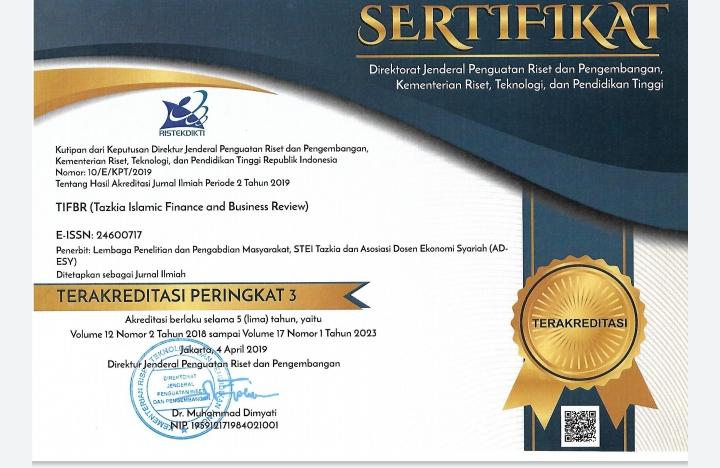Islamic Inheritance Law (Faraid) and Its Economic Implication
DOI:
https://doi.org/10.30993/tifbr.v8i1.64Abstract
Objective - This paper attempts to discuss the Islamic law of inheritance (Faraid), its existence and its systematic impact to humankind. Faraid plays a fundamental role as an impetus behind the development of science, which has a great economic impact to the development of social welfare. This paper aims to increase the awareness towards the importance of Islamic law of Inheritance for knowledge development, and social prosperity of humankind. Secondly, to reveal the hikmah behind the rules set in Faraid and their economic implications. Thirdly is to emerge the consciousness for being Sharia’ compliance by revealing the secret behind His rules and its benefit for humankind.
Method - Employing a qualitative method and literature review
Result - This paper shows that from the macroeconomic perspective, Faraid systematically ensures the redistribution of wealth, and spreads the concentration of wealth in every generation. Literature reviews and information collected are employed in order to analyze and make further inferences. The literature review clarifies the magnificence of Faraid and its real contribution to human development; in economics and in other disciplines. Faraid keeps the justice in wealth distribution, protects property rights, empowers women to be involved in economic activities and as a whole, Faraid also encourages economic growth.
Conclusion - Conclusively, by commissioning Faraid, the wealth is generated and returned to the factors production through many hands of who deserve it after the absence of deceased.
Keywords : Islamic Inheritance Law; Faraid; Property Rights; Distribution of Wealth
Downloads
Published
How to Cite
Issue
Section
License

Tazkia Islamic Finance and Business Review (TIFBR) is licensed under a Creative Commons Attribution-NonCommercial 4.0 International License.
Authors who publish with this journal agree to the following terms:
- Authors retain copyright and grant the journal right of first publication with the work simultaneously licensed under a Creative Commons Attribution License that allows others to share the work with an acknowledgment of the work's authorship and initial publication in this journal.
- Authors are able to enter into separate, additional contractual arrangements for the non-exclusive distribution of the journal's published version of the work (e.g., post it to an institutional repository or publish it in a book), with an acknowledgment of its initial publication in this journal.
- Authors are permitted and encouraged to post their work online (e.g., in institutional repositories or on their website), as it can lead to productive exchanges, as well as earlier and greater citation of published work (See the Effect of Open Access).

















